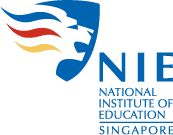NIE's respected authority on Plasma Physics, Associate Professor Rajdeep Singh Rawat, talks about his passion for experimental sciences and how this fuelled a career in Physics that has spanned from India to Malaysia and Singapore.
It seems unimaginable that Associate Professor Rajdeep Singh Rawat, who heads NIE's Natural Sciences and Science Education Academic Group, did not perform very well in Physics as a young student. After all, the distinguished professor is the first Asian to be appointed President of the International Physics Olympiad. He is also President of the Institute of Physics Singapore and President of the Asian African Association for Plasma Training. | Read More |
"But you see, I was intrigued with the subject," Associate Professor Rajdeep began. "Many of my classmates went into medicine and engineering, but I wanted to study Physics at one of the best colleges in Delhi. The selection criteria were very tough, so I fought hard to be amongst the crème de la crème. That's how I ended up doing my honours in Physics."
As a young undergraduate, Associate Professor Rajdeep was active in physics societies. "Once, we invited this prominent plasma physicist, Professor P. I. John, to deliver a talk. He spoke about fusion and nuclear physics and how this would become the future of energy solutions for mankind. That got me very excited, and I made up my mind to pursue experimental plasma physics that very instant."
Associate Professor Rajdeep went on to complete his Masters degree in plasma and astrophysics, and obtained a national scholarship for PhD. To his great disappointment, the university could not support a PhD in experimental plasma physics at it lacked the resources. "As we say in India, it's all written in the stars. Some 18 months after working on theoretical investigations, I got wind about an experimental plasma physics programme started by a Professor Lee Sing from Universiti Malaya. I knew I had to pack my bags and leave for Malaysia."
The programme required Associate Professor Rajdeep and his cohorts to come up with a prototype device in one month. "Prof Lee was a true mentor, and the prototype was assembled faster than expected. We even had chance to help with some of Prof Lee's experiments and published two papers!
"When I got back to Delhi, I completed my PhD on that system and got Prof Lee to be my PhD examiner. I also pioneered a process to use that device for materials modification and deposition," he added.
Things got busier after Associate Professor Rajdeep became a university lecturer and he lost contact with his supervisor. "Not everyone had email at the time and it was sheer coincidence that I managed to reconnect with Prof Lee. By then, he had moved from Universiti Malaya to the former NIE campus at Bukit Timah, where he had established a plasma physics group as the first department head for natural sciences! Once again, Prof Lee got me to pack my bags and head out to Singapore. The rest, as you know, is history."
Even after all these years, Physics has continued to captivate Associate Professor Rajdeep's interest. "The language of Physics is Mathematics, so first, you've got to be good at Maths. Secondly, it is a very conceptual subject. That, I believe, is the main challenge for most Physics students," he observed.
These days, however, education technologies have improved by leaps and bounds. "As teachers, we can make difficult concepts come alive through videos, animation and demonstrations. Gone are the days of OHP transparencies and blackboards! In Singapore and NIE, we're very lucky to have the resources to make teaching more interesting and interactive for our students."
Associate Professor Rajdeep encourages all Physics teachers to make use of modern resources to improve both the teaching and learning experience. "In the old days, students would complain that Physics was very "dry" because theory and practical were taught separately. Now, we're able to bring online learning, mobile applications, as well as virtual and augmented reality into the classroom. This is definitely an area I'm most excited about, as we transform into a future-ready NIE."
Sharing from experience, Associate Professor Rajdeep cautions: "To be a good Physics teacher, one cannot simply depend on head knowledge or education technology. Successful teachers must learn to be good communicators. They must be interested to pass on their knowledge and be able to make use of pedagogies to serve their purpose. Not everyone is born a great teacher."
At this juncture, we had to ask the physics professor if he considered himself a born teacher. "If I wasn't a teacher, I would've made a pretty good badminton player!" he laughed.





